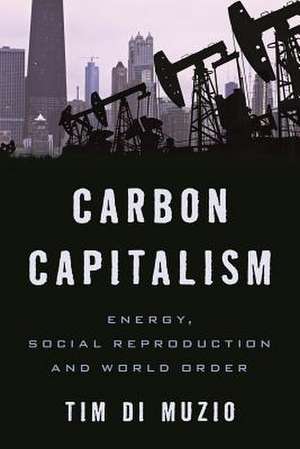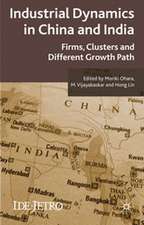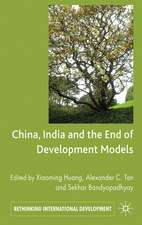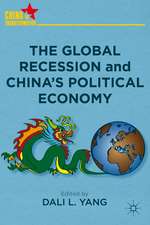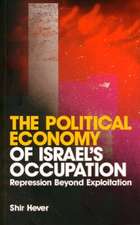Carbon Capitalism
Autor Tim Di Muzioen Limba Engleză Paperback – 31 aug 2015
Preț: 451.17 lei
Nou
Puncte Express: 677
Preț estimativ în valută:
86.33€ • 90.14$ • 71.45£
86.33€ • 90.14$ • 71.45£
Carte tipărită la comandă
Livrare economică 05-19 aprilie
Preluare comenzi: 021 569.72.76
Specificații
ISBN-13: 9781783480982
ISBN-10: 178348098X
Pagini: 216
Ilustrații: 29 charts, 5 tables
Dimensiuni: 147 x 226 x 13 mm
Greutate: 0.25 kg
Editura: Rowman & Littlefield International
ISBN-10: 178348098X
Pagini: 216
Ilustrații: 29 charts, 5 tables
Dimensiuni: 147 x 226 x 13 mm
Greutate: 0.25 kg
Editura: Rowman & Littlefield International
Cuprins
Preface / Chapter 1. Carbon Capitalism and Petro-Market Civilization / Chapter 2. The Political Economy of Petro-Market Civilization / Chapter 3. The Birth of Petro-Market Civilization in Britain / Chapter 4. The Expansion of Petro-Market Civilization in the United States / Chapter 5. Global Carbon Capitalism / Conclusion. The Post-Carbon Era and the General Crisis of Social Reproduction / Bibliography / Index
Descriere
As fossil fuels deplete, what happens to capitalist political economies they support? This book examines a new theory for understanding energy, social reproduction and capitalism.
